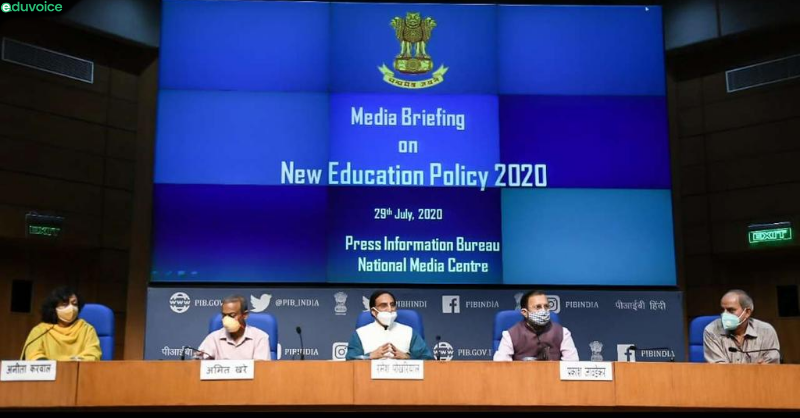The National Education Policy 2020 got approval by the Union Cabinet. The policy is aimed towards bringing various transformational reforms in schools and higher education systems of the nation.
On Wednesday the National Education Policy 2020 got approval from the Union Cabinet. The chairperson of Union Cabinet is Prime Minister Shri Narendra Modi. The policy is aimed towards bringing various transformational reforms in schools and higher education systems of the nation. The National Education Policy is the first education policy of the 21st century. The new education policy will replace the 34-year-old education policy of the country i.e., National Policy on Education (NPE), 1986.
The National Education Policy 2020 is built on the fundamental of Access, Equity, Quality, Affordability, and Accountability. Also, the policy is lined up towards the fulfillment of the 2030 Agenda for Sustainable Development. Further, the National Education Policy 2020 aims to transform India into a knowledgeable society and a global superpower of knowledge.
“This policy is aligned to the 2030 Agenda for Sustainable Development and aims to transform India into a vibrant knowledge society and global knowledge superpower by making both school and college education more holistic, flexible, multidisciplinary, suited to 21st century needs and aimed at bringing out the unique capabilities of each student.”
Higher Education Highlights of the National Education Policy 2020
Increase Gross Enrollment Ratio
The NEP 2020 aims to increase the Gross Enrollment Ratio (GER) in the higher education sector by up to 50% by 2035. It includes vocational education from 26.3% in 2018 to 50% by 2035. Under this new education policy, the aim is to increase the number of seats in higher educational institutions to 3.5 Crore.
Holistic Multidisciplinary Education
The purpose of NEP 2020 is to make Under Graduation education flexible curricula, creative combinations of subjects, integration of vocational education, and multiple entries and exit points with appropriate certification. The policy intends to create a broad-based, multidisciplinary and holistic Under Graduation system of education.
“UG education can be of 3 or 4 years with multiple exit options and appropriate certification within this period. For example, Certificate after 1 year, Advanced Diploma after 2 years, Bachelor’s Degree after 3 years and Bachelor’s with Research after 4 years.”
Academic Bank of Credit
An Academic Bank of Credit is to be formed for digitally recording academic the credits earned from different Higher Education Institutions. This will enable easy transfer and counting of academic credit towards the final degree earned.
Multidisciplinary Education and Research Universities (MERUs)
Multidisciplinary Education and Research Universities (MERUs) are to be set up as models of best multidisciplinary education as per global standards of educations in the country. They are expected to be as good as IITs, IIMs.
The National Research Foundation will be turned into an apex body for nurturing a strong research foundation. Also, the research foundation will work to build research capacity across higher education institutions across the country.
For More Such Articles, News Update, Events, and Many More Click Here

